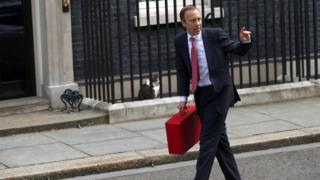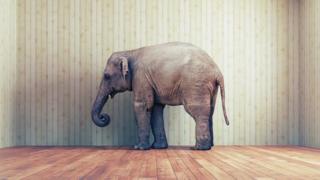Can elephants help explain statistics? – BBC News
 Image copyright Thinkstock
Image copyright ThinkstockIf 29 whales have beached in Europe over recent weeks, should we be worried?
When it was revealed annual net immigration had reached 330,000 – what does this say about the refugee crisis?
Are you sure you know what a billion is? Is one in 10 better than 10%?
The BBC’s Trust has issued a new report on how the BBC uses statistics and says more needs to be done to help guide the public through the ever growing blizzard of numbers.
One of the key findings was the public’s “frustration” with statistics in daily news, especially debates such as the Scottish referendum and the EU.
Rather than just saying what each side was claiming, the public wanted more guidance as to which one to believe.
The questions is – how do you do that and remain impartial? Here’s a little guide to the issues about news and its struggle with numbers.
That’s a lot – or is it?
 Image copyright PA
Image copyright PAIn February the BBC reported that 3,000 operations had been cancelled because of the junior doctors’ dispute.
The figure came from the government. What emerged later was that 92% of operations had continued as planned. Figures can be eye-catching headlines, but they need explanation.
If a budget is going to be cut by 12bn, are you absolutely sure how much that is? And a trillion?
The BBC’s research revealed that amongst the sample they spoke to, most people struggled with these big numbers.
That figure of 330,000 for immigration took on a different meaning for the people in the BBC study when it was revealed that asylum seekers made up just 4% of that total.
The answer according to the Trust? More explanation and more context.
I don’t believe it!
 Image copyright Reuters
Image copyright ReutersIt was discovered that just 4.2% of statistics were challenged or scrutinised by journalists.
Some of course can be taken at face value – but the report says the BBC should be “braver” in challenging the claims of politicians.
In October 2015 the government minister Matthew Hancock said eight out of 10 people would be better off after the cut in working tax credits.
Should the presenter have countered with the view of the Institute for Fiscal Studies that it was “arithmetically impossible”?
Headlines give you cancer

In October 2015, the World Health Organisation put processed meat on its list of items that could increase your risk of cancer, a list that also include tobacco.
So is the headline “bacon, sausages and ham now rank alongside cigarettes as a cause of cancer” accurate?
It might be helpful to know that being on the list does not mean an equal risk.
Eating 50g of processed meat raises the risk of bowel cancer by 18%. In effect, the rise is one in 100.
Compare this with smokers – they face a rise from the one in 100 chance that non-smokers have of getting lung cancer, to 20 in 100 if they smoke a pack a day.
A thing as big as whales – or Wales
 Image copyright iStock
Image copyright iStockAnd returning to where we began – those whales.
It would have helped the story if it was revealed that the 29 whales had all been washed up in one month in 2016 – and secondly that 10 years ago, the number was zero.
Context and extra detail is vital to understanding.
But there is also the basic question of language. One out of 10 was, in the report, preferred to 10%.
The respondents also preferred ounces to grams when it came to stories about steak.
Kilowatt hours (mentioned in stories about electricity price rises) were meaningless to most in the audience.
And instead of hectares and square miles, comparisons with other places worked better.
The question here is which comparison? The UK is fond of Wales, double-decker buses and football pitches.
Do they work? Or would it be better if it was instead the size of Israel, elephants and 7000 square metres of open ground?
Read more: http://www.bbc.co.uk/news/entertainment-arts-37039294
